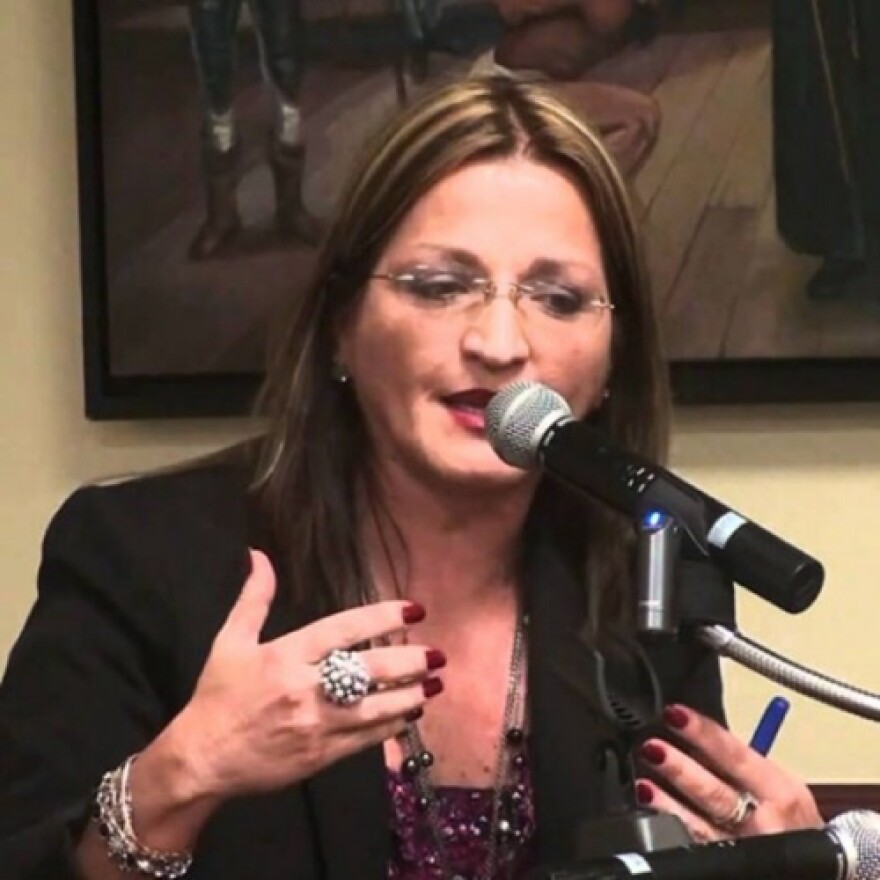Two years ago, most Venezuelan exiles in South Florida felt sure the disastrous, authoritarian regime they fled in Venezuela was about to fall. In Caracas, opposition leader Juan Guaidó had just triumphantly declared he was Venezuela’s constitutionally legitimate President — and the United States, and much of the world, backed him up.
It turned out to be an illusion. Venezuelan President Nicolás Maduro and his socialist regime did not fall. Their power looks even more entrenched now than it did then.
In these times, you can rely on �۰����²�to keep you current on local news and information. Your support is what keeps �۰����²�strong. Please become a member today. Now. Thank you.
So the Juan Guaidó Venezuelans heard this month was more subdued as he now proposed negotiating with the Maduro regime — for free and fair elections; for letting more humanitarian aid and vaccines into Venezuela; for freeing political prisoners — with international players like the U.S and Norway as brokers.
The video was received more like a funeral in much of Doral and other Venezuelan enclaves in South Florida, where negotiating with Maduro has long meant surrender to a dictatorship responsible for Venezuela’s horrible humanitarian crisis. Still, a growing number of exiles here have decided, albeit painfully, that it may be the only way out of that crisis.
“At this moment there is no other road," said expat Vilma Petrash, who teaches government at Miami Dade College.
READ MORE: Trump's Deportation Suspension Both Gratifies and Galls South Florida Venezuelans
Even as Petrash resigns herself to negotiations with the Maduro regime now, she finds the idea repugnant. In the early 2000s she was an opposition activist in Caracas. She says she left Venezuela when her son’s kindergarten got a call from regime thugs threatening to kidnap the boy.
“I would never recover from that," Petrash said. "That’s a permanent pain in my life.”
Today Petrash is appalled by people cannot get a COVID-19 vaccine shot unless they present a new national ID card — which you can only get if you support the regime.

Petrash doesn’t think negotiations can actually lead to elections that would toss Maduro from power. But, she points out, President Trump levied tough economic sanctions against the regime — like a de facto U.S. embargo on Venezuelan oil — and that now, Maduro wants to discuss ways to get them lifted. She believes that could be leveraged to get more people vaccinated as well as let international NGOs distribute food and fuel more equitably in Venezuela.
“There is no opportunity of regime change or transition to democracy," Petrash said. "That opportunity, if we ever had it, is gone.
"So I would say some kind of feasible solution is to at least stop the bleeding in terms of [Venezuelan] refugees leaving the country because their lives are so miserable there. It’s much better to have some kind of negotiation than none at this point, and see what happens.”
ENDING THE AGONY
Other Venezuelan expats now take Petrash's mixed tack on negotiations, including blog writer Jose Hernandez.
"I'm OK with negotiations," Hernandez said, "but at this point, their priority has to be vaccines, food and anything that ends the agony of Venezuelans in Venezuela. Elections, I'm sorry to say, are a secondary thing right now."
But others do think negotiations could eventually make regime change happen in Venezuela. Among them are community leaders like Oswaldo Muñoz, who heads the Miami media company
I know Maduro is not a man to be trusted, but there are negotiating factors in our favor now that could lead to transparent elections.Oswaldo Munoz
There is also no love lost between Muñoz and Venezuela's regime, which has all but banned him from the country. When Muñoz went there a few years ago for a family funeral, he had to ask an old friend who’s a security official to get him quietly through immigration.
And he admits he too felt Guaidó’s heroics and Trump’s sanctions would topple Maduro. But he says some bitter reality has since smacked him in the face.
“Trump treated us Venezuelans like an estafador — a con man," Muñoz said. "He actually made us believe the U.S. would invade Venezuela if Maduro wouldn’t leave.”

Muñoz also says it was a mistake for Venezuelan exiles to adopt the same sort of rigid, no-dialogue-with-the-regime stance that Cuban exiles have taken for 62 years — unsuccessfully — with the Castro regime.
“We Cuban-ized ourselves," he said, "but the Cuban approach doesn't work for the Venezuelan situation."
Muñoz does believe the sanctions can help Venezuela’s opposition chip away at regime resistance to conditions such as permitting international election observers.
“I know Maduro is not a man to be trusted," Muñoz said. "But there are negotiating factors in our favor now that could lead to transparent elections.”
Perhaps — but many, if not most, Venezuelan exiles still insist Maduro's is not a regime to be dealt with but dislodged.
“I really think there is nothing to negotiate with a criminal when you are in captivity," said Beatriz Olavarria, a Miami business consultant and Venezuelan exile activist.

Olavarria's father, Jorge Olavarria, was a leading Venezuelan journalist and politician. Early on he supported what was then the Hugo Chávez regime — Maduro took power in 2013 after Chávez died — because believed it would improve Venezuela’s democracy. His daughter says he realized its dictatorial nature before he died in 2005.
“On his deathbed," she said, "he did lament: 'What did I do, what was I thinking?'”
That’s a big reason Beatriz Olavarria believes Guaidó, the Biden Administration and the international community should let Trump’s economic sanctions run their course and "choke the regime."
"You have to be sturdy. Put more pressure. There has to be more fear,” she said.
But the fear among a growing number of Venezuelan exiles right now is that fear alone isn’t working.



